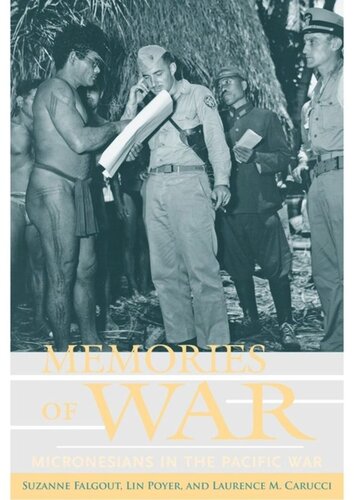

Most ebook files are in PDF format, so you can easily read them using various software such as Foxit Reader or directly on the Google Chrome browser.
Some ebook files are released by publishers in other formats such as .awz, .mobi, .epub, .fb2, etc. You may need to install specific software to read these formats on mobile/PC, such as Calibre.
Please read the tutorial at this link: https://ebookbell.com/faq
We offer FREE conversion to the popular formats you request; however, this may take some time. Therefore, right after payment, please email us, and we will try to provide the service as quickly as possible.
For some exceptional file formats or broken links (if any), please refrain from opening any disputes. Instead, email us first, and we will try to assist within a maximum of 6 hours.
EbookBell Team

4.8
84 reviewsMicronesians often liken the Pacific War to a typhoon, one that swept away their former lives and brought dramatic changes to their understandings of the world and their places in it. Whether they spent the war in bomb shelters, in sweet potato fields under the guns of Japanese soldiers, or in their homes on atolls sheltered from the war, Micronesians who survived those years know that their peoples passed through a major historical transformation. Yet Pacific War histories scarcely mention the Islanders across whose lands and seas the fighting waged.
Memories of War sets out to the fill that historical gap by presenting the missing voices of Micronesians and by viewing those years from their perspectives. The focus is on Micronesian remembrances—the ritual commemorations, features of the landscape, stories, dances, and songs that keep their memories of the conflict alive. The inclusion of numerous and extensive interviews and songs is an important feature of this book, allowing Micronesians to speak for themselves about their experiences. In addition, they also reveal distinctively Micronesian cultural memories of war.
Memories of War preserves powerful and poignant memories for Micronesians; it also demonstrates to students of history and culture the extent to which cultural practices and values shape the remembrance of personal experience.